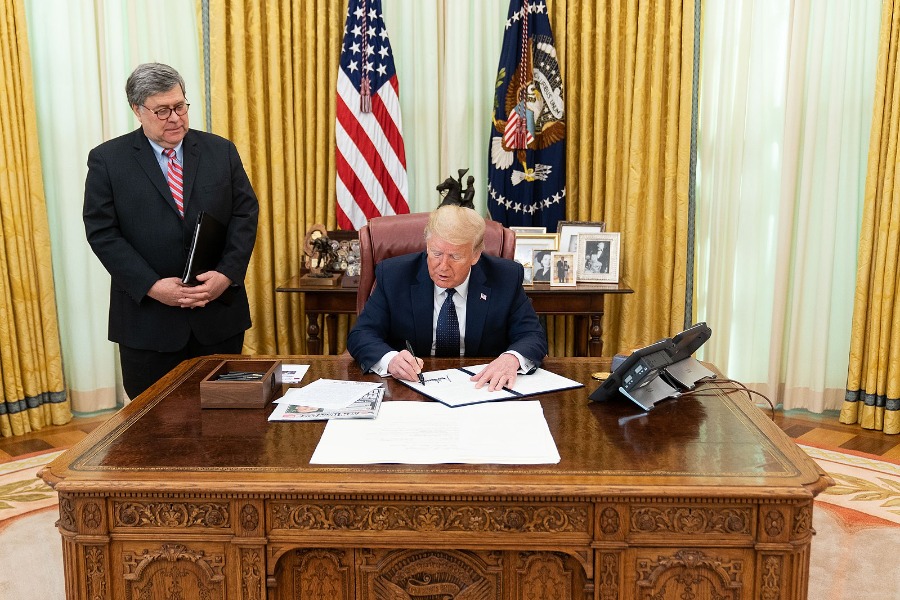Published by The Lawfare Institute
in Cooperation With

Multiple media outlets this week report that Secretary of Defense Ash Carter is considering a post-retirement grade reduction for General David Petraeus, based his misconduct while on active duty as a four-star General. But reopening a matter that has already been settled –and decided in General Petraeus’ favor – sends a harmful signal throughout the ranks of senior uniformed leaders. The best course for the health of the force is for Secretary Carter to leave General Petraeus’ four-star retirement intact.
The legal standard that determines the retirement grade of an officer is “highest grade in which he served on active duty satisfactorily, as determined by the Secretary of the military department concerned, for not less than six months.” Clearly, General Petraeus committed the serious violation of transmitting classified information to a person without valid access and a need to know. But, however salacious the circumstances, that information was never in real jeopardy of compromise to a foreign power. His biographer was – and is – a reserve Army officer and held an active security clearance at or above the level of the materials she viewed. The issue is only that she lacked the specific access and need to know for the particular classified material that Petraeus shared.
Moreover, General Petraues pled guilty, as widely reported, in federal court to the single charge of the unauthorized retention and disclosure of classified material. For that offense, he was punished in accordance with federal law. Notably, had the disclosures at issue been discovered while he was on active duty and fully subject to the Uniform Code of Military Justice (UCMJ) – and had he been a more junior grade of, say, a colonel or a lower-ranking general – the matter would most likely have been addressed with non-judicial punishment under Article 15 of the UCMJ. Indeed, there is ample precedent for similar cases in the armed services being handled administratively.
Against that single substantiated indiscretion, General Petraeus rendered over four years of service, from early 2007 until August 2011, as a four-star general in the military’s most demanding and important assignments. General Petraeus commanded all coalition forces in Iraq when the tide turned in that war. During his subsequent duty at US Central Command he lead two wars and a myriad of other counterterrorism and expeditionary operations. Then his nation called on him, once again, to take command during a particularly turbulent period in Afghanistan. All four-star duty is important and demanding, but General Petraeus again and again answered the call and succeeded in each assignment.
The unauthorized disclosure of classified information is a serious matter. But to determine if General Petraeus rendered “satisfactory” service, one must consider the single instance of poor judgment – and the actual minimal security compromise at stake – against the entirety of duty performed. General Petraeus himself would likely admit that he did not serve perfectly, but he certainly satisfied – if not exceeded – the standard of service.
The decision to retroactively retire General Petraeus as a three-star general, risks sending an unintended signal that could endure for a generation of current and future senior military leaders. There is little doubt that Secretary Carter is considering the reduction of General Petraeus’s retirement grade in order to send a message to generals and admirals regarding the expectations of conduct and professionalism. Certainly, there needs to be accountability for serious misconduct at all ranks of military service. But the unintended message of this ex post facto reduction in grade would be to tell junior generals and colonels that no matter how well you serve, no matter how much you sacrifice in service to our nation, there is always peril that senior civilian leaders will throw you under a bus for even a minor indiscretion – and that jeopardy never ends. General Petraeus made a mistake and knew what he was doing was wrong. And for that he has admitted his actions and accepted his punishment. Perhaps now, in light of extraordinary service, it is worth giving the man a break. There may be value in recognizing that, even he, is merely human.
The rejoinder that anyone of lower rank or personal stature would have been subject to trial by court-martial is likely false. Although the majority of these offenses are handled administratively, General Petraeus was subject to federal conviction. Moreover, the overall contribution of an individual’s service would be factored into the discipline decision of any individual of any rank. Contrary to the argument that Petraeus enjoyed special protections, the Department of Justice likely pursued these charges precisely because he was so senior in order to send a message to others in government about leaks and unauthorized disclosures. Had Petraeus been a low-ranking civilian employee, he likely would have been fired but not prosecuted. Most current Department of Justice leak prosecutions involve serious, damaging disclosures.
Reducing General Petraeus in retirement would also reduce his prestige and credibility. It is possible that at some point in the future, once he has lived down his indiscretion, the nation may again require Petraeus’ talents in a senior appointed capacity. Reducing his retirement grade makes that possibility more remote by diminishing his stature. A four-star, even retired, enjoys influence not available to retirees of lesser rank. Certainly the question is not about the money; General Petraeus is reportedly doing fine in that regard. Rather the question is one of the honor of retiring in the rank he clearly earned.
General David Petraeus was an extraordinarily effective military leader, who deserves credit for saving the US effort in Iraq, at least for a while. He dedicated the major part of his adult life in service to his nation. Secretary Carter should consider whether the entirety of his four-star service spanning over four years and running two wars merits his requirement grade. Or is a single act – for which he has been punished under law – enough to undermine that service as “satisfactory?” Leaving this officer’s retirement intact is fundamentally fair, and strikes the right tone with current senior leaders – the Department will hold you accountable, but will also keep faith with you when the circumstances warrant.
***
Butch Bracknell is a retired Marine officer, a Defense Council Member with the Truman National Security Project, and a graduate fellow of the Sorensen Institute for Political Leadership at the University of Virginia. He resides in Virginia Beach and can be reached at rob.bracknell@gmail.com. Views expressed are his own and should not be attributed to the US Government or any other entity.

.jpeg?sfvrsn=6117c6bf_4)


